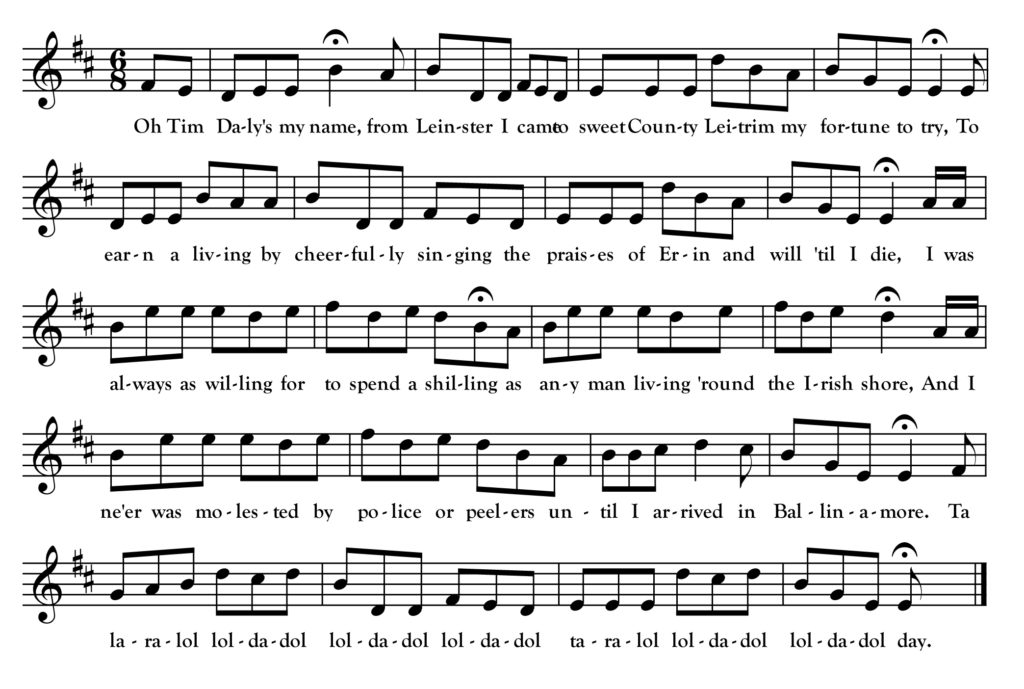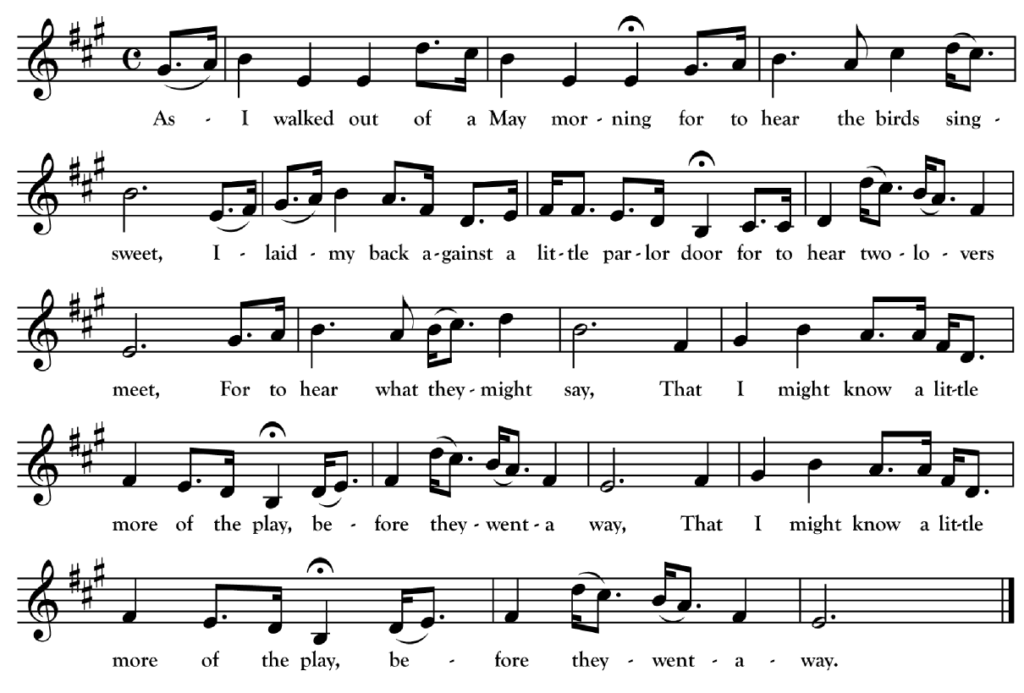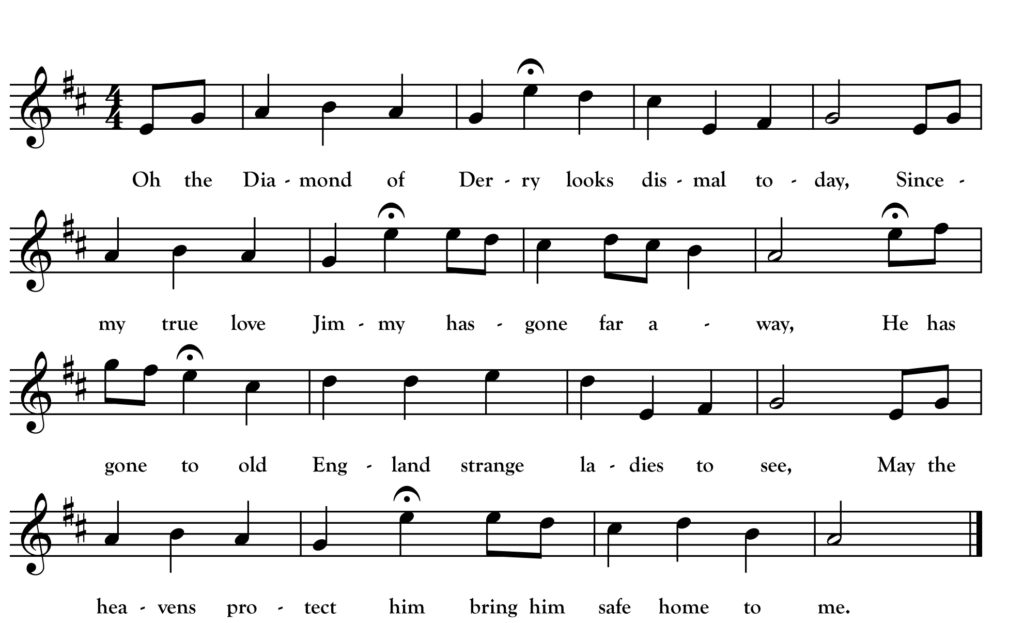The Peelers of Ballinamore

Oh Tim Daly’s* me name, from Leinster I came,
To the sweet County Leitrim my fortune to try,
To earn a living by cheerfully singing,
The praises of Erin and will ’til I die,
I was always as willing for to spend a shilling,
As any man living ’round the Irish shore,
And I ne’er was molested by police or peelers,
Until I arrived in Ballinamore.
Ta lara-lol lolda-dol lolda-dol lolda-dol
Tara-lol lolda-dol lolda-dol day
It happened one evening when market was over,
‘Twas into an alehouse I chanced for to pop,
I rapped on the counter and called for the waiter,
To bring me a glass of the best in the shop,
She showed me a room where there was a large table,
I called for good liquor and drank it galore,
And I cared not a damn for those poor pimping peelers,
That watched all the topers of Ballinamore.
That evening I spent with no cause to repent,
While drinking of liquor that was pure and strong,
And whenever the waiter she chanced to delay me,
I kept myself cheered by the verse of a song.
Oh, they marched me along by the verse of my song,
And it’s in prison strong they did me secure,
I had nothing to cheer me, no friend to come near me,
I lay like a dog with a wisp on the floor,
I lay myself down for to take a slumber,
But when I awoke sure me sides they were sore,
Which cause me to curse John Briggs and his lodgings,
And likewise the peelers of Ballinamore.
’Twas early next morning John Briggs gave me warning,
That I must be ready at the hour of ten,
And I should appear before Mr. Broder,
He got the directions from a policeman,
The sergeant he come with two or three others,
They marched me a prisoner straightway through the town,
And you’d think I had killed all their fathers and mothers,
And fought to overturn the crown.
Long life to the chief, he did liberate me,
To hold me for drinking they thought it not fair,
Since peelers and parsons and preachers and doctors,
They all take a drop to banish dull care,
Now while I’m serenading ’round this Irish nation
Each alehouse and tavern I chance for to roar,
And I’ll toast to the members of those lads and the lassies,
That dance ’round the borders of Ballinamore.
____
In 2003, singer and scholar Dan Milner produced a great CD titled Irish Songs from Old New England (Folk-Legacy Records) that featured 14 different singers doing Irish songs found in the Flanders Ballad collection. I highly recommend this recording to anyone interested in the Irish influence in the woods song tradition! (you might have to search Ebay or Amazon for a used copy unfortunately)
On that CD, the great County Antrim singer Len Graham does this very rare broadside-type ballad “The Peelers of Ballinamore.” The source singer for the song was J. J. Downs of West Peru, New York who sang the song for the Flanders collection in 1944. Downs said he learned it from an uncle who came from Ireland. Peru, NY is on the western shore of Lake Champlain in far northern New York state. The above transcription is my own from the Downs recording which you can find on archive.org.
“Peeler” was once a common slang term for a police constable. The term originated with Sir Robert Peel who established the Metropolitan Police in London in the 1829. The notes to Irish Songs from Old New England tell us that a “toper” is equivalent to a tippler (a habitual drinker of alcohol).
*The name at the start of the song is inaudible in the Flanders recording but Len Graham sings “Tim Daly.” I’m not sure if Len added that detail of if perhaps a manuscript version was written down by Flanders with the name in place.


